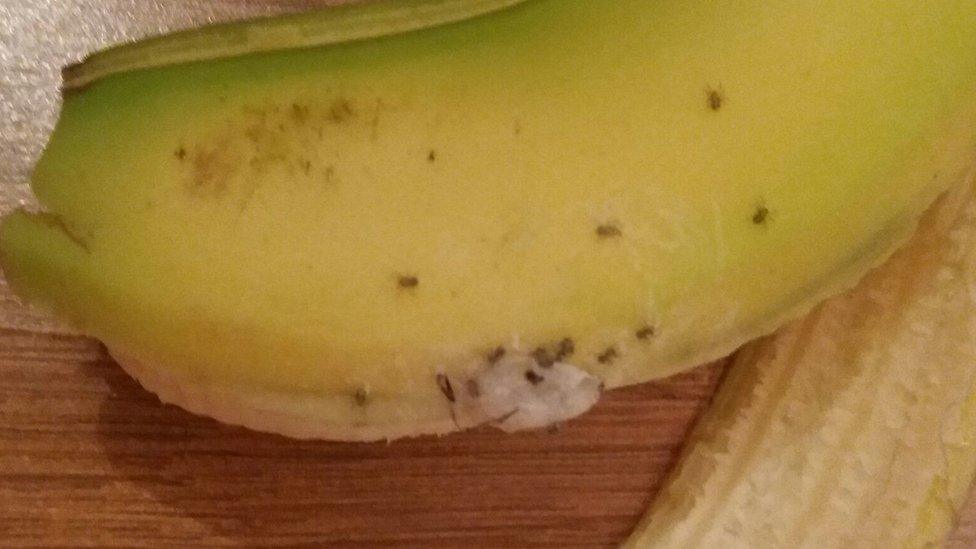False widow spider bite led to life-threatening infection
- Published
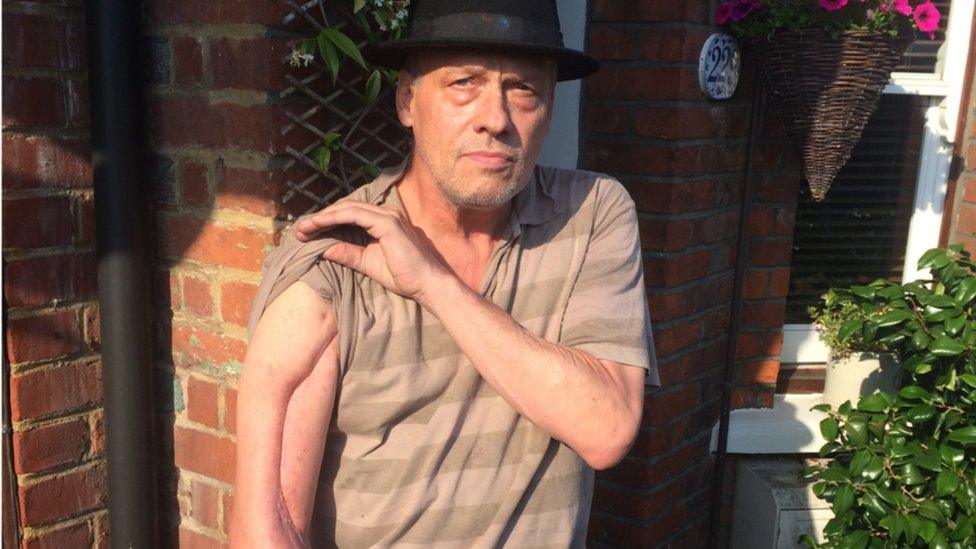
Paul Jory was left with a scar from his wrist to his armpit after a spider bite
A man left critically ill after being bitten by a spider hidden in a bunch of bananas says A&E staff saved his life.
Paul Jory, 59, was bitten by a three-inch arachnid, thought to be a false widow, in the living room of his home in St Albans on 5 May.
He says his arm developed a swelling the size of a golf ball and he was put in an induced coma as his body fought a life-threatening infection.
"Without the care I received, I'd be dead," he told the BBC.
Local live: read more Beds, Herts and Bucks stories here
How dangerous are false widow spiders?
The father-of-one has undergone eight operations since the infection and has been left with 40% movement in his right arm.
From descriptions he gave, Mr Jory believes he may have been bitten by a venomous false widow spider.
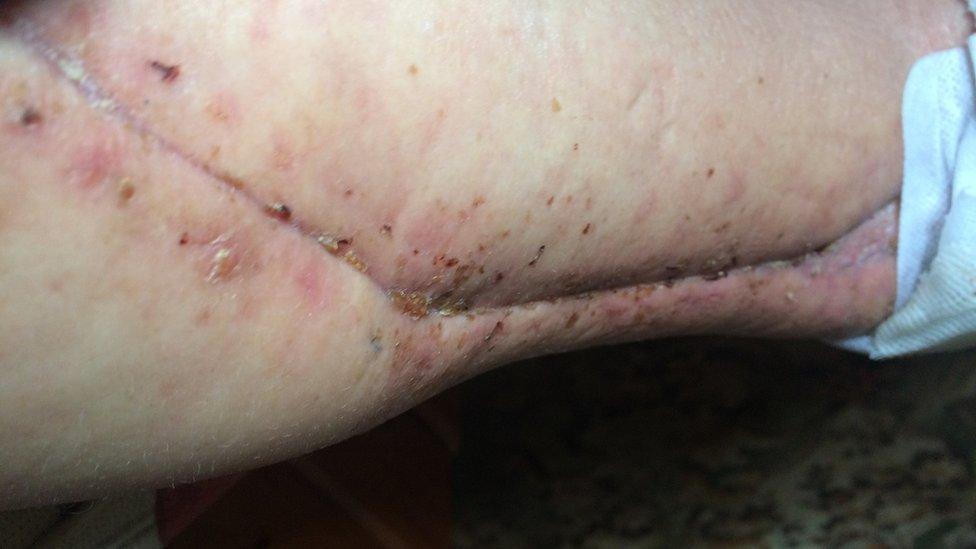
Mr Jory spent five weeks in hospital and now has 40% movement in his arm
"I was in my living room when I felt a little tickle on the back of my hand - and noticed this strange spider," he said.
"I knew it wasn't nice, the danger signals were ringing loud.
"I kept still to let it crawl up my arm, thinking it would walk off. But it got as far as the inside of my elbow joint - and suddenly bit me," he said.
He described the initial pain as "like an electric shock". The crook of his arm swelled to the size of a golf ball.
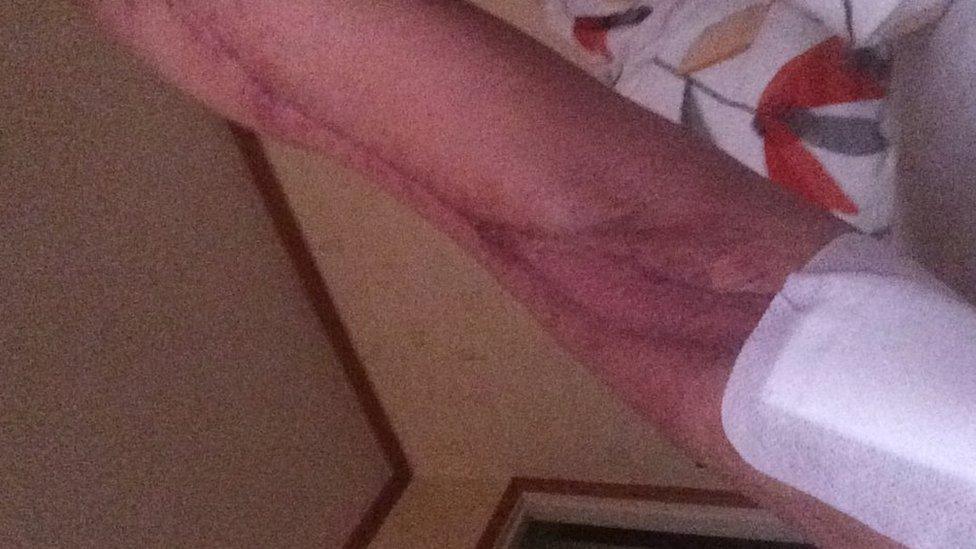
Mr Jory has praised quick-thinking hospital staff who fought to save his life
Mr Jory, the managing director of a marketing firm in Hertfordshire, went to Watford General hospital, where the last thing he remembers is being put on a "wheelie bed". He was placed in an induced coma - and spent almost five weeks in hospital.
He developed a flesh-eating infection and lost "chunks of muscle and flesh" from his upper arm.
"My notes say I had necrotising fasciitis, external secondary to a spider bite," he added.
A scar now runs from his wrist to his armpit.
"Everyone knocks the NHS," he said. "But they pulled out all the stops for me. They saved my life."
False widows are cited as Britain's most venomous spiders, but experts say the species is not usually aggressive towards humans and that bites are rare.
They're often mistaken for their more dangerous cousin, the black widow.
- Published23 October 2013
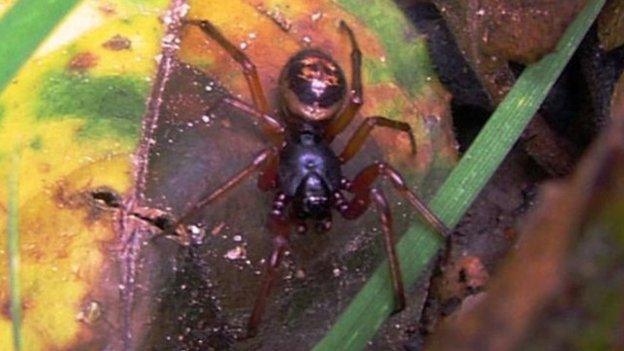
- Published2 May 2017
